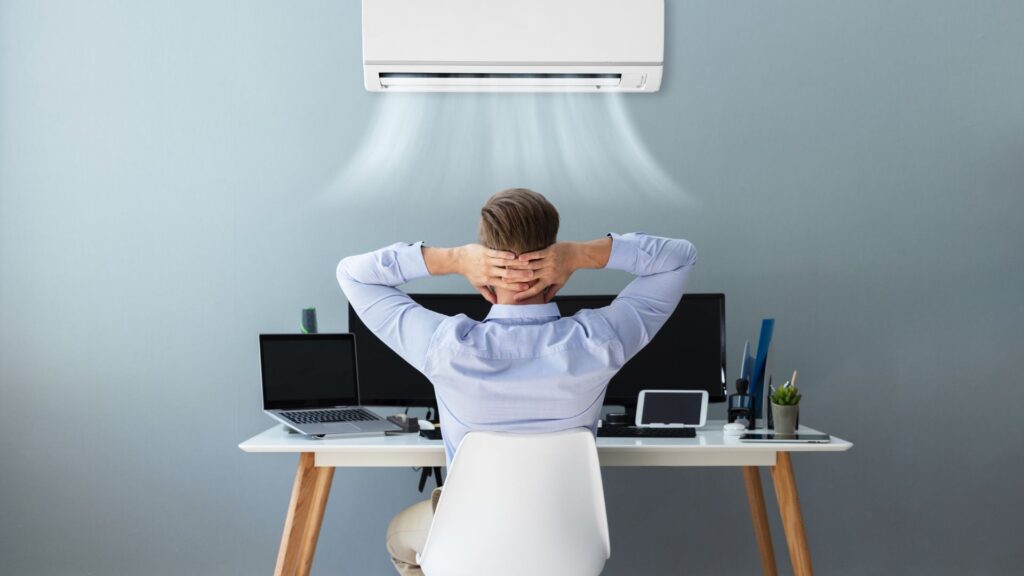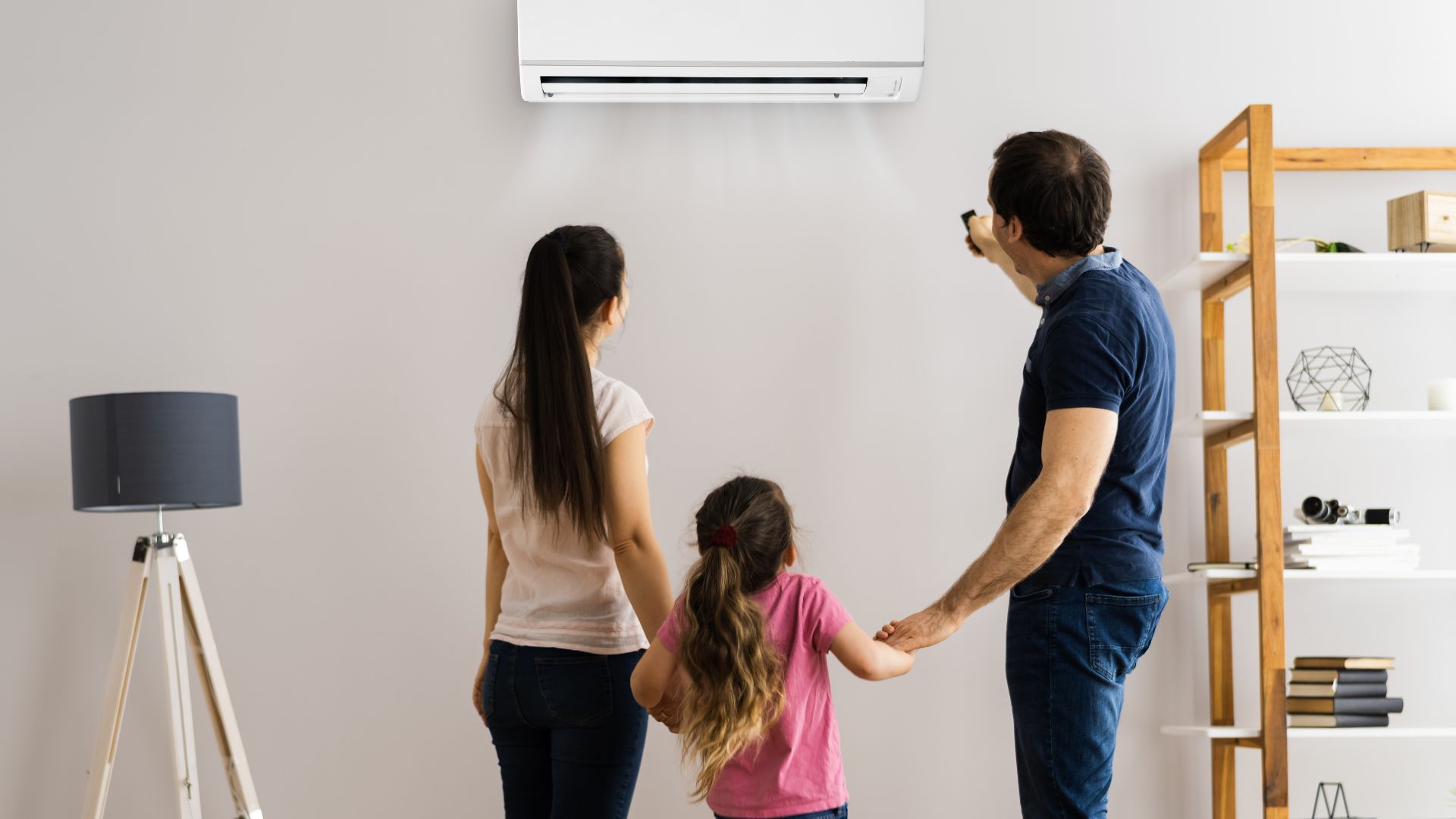Which air conditioner lasts the longest? The news that your air conditioner has a finite lifespan and is not permanent will be heartbreaking.
In the heat of July, when the air conditioner stops working, few people give it much thought. However, you should know that there are techniques to extend the life of your air conditioner.
Here, we'll go over some of the best practices for extending the life of your air conditioner. We'll also offer advice on how to fix the most prevalent issues. Continue reading to find out more!
Determinants Of Air Conditioner's Lifecycle
In what sort of conditions should an AC be used? Many factors influence how long an air conditioner lasts. The following are the most influential factors:
Type Of Air Conditioning Unit
The air conditioner's lifespan is greatly affected by the model you choose. A window air conditioner, for instance, will last less time than a central air conditioner. Several factors, including the manufacturer, affect the AC system's longevity.
Usage
The air conditioner's useful life will also be influenced by how often it is used. Constant use will shorten its lifespan significantly compared to infrequent use. This covers the installation location, the type of room in which the air conditioner is installed, and how the user operates the unit.
Maintenance
Maintaining your air conditioner is as important as maintaining any other home device. At least once a year, have a certified technician inspect and service your system. This will assist in keeping it in top shape and identifying issues before they escalate into costly fixes.
A well-functioning air conditioner relies on routine maintenance. If the filters aren't changed and the coils aren't cleaned, the air conditioner won't work either and will break down faster.
Temperature
A cooling system's durability can also be impacted by the ambient temperature in which it operates. Running it at a lower temperature will allow it to function longer than running it at a higher temperature. However, the weather in your region may also have a role in this.
An air conditioner can typically be used for 10–15 years before it needs to be replaced. Your air conditioner's lifespan may be shortened if you are located in a more severe climate. Place of residence characterised by high or low temperatures. It will strain your heating, ventilation, and air conditioning system more, reducing its useful life.
Size
The useful lives of air conditioners are also affected by their physical dimensions. If you have a unit too tiny for your home, it will have to work extra to chill your room, which might limit its lifespan. Conversely, if the unit is too big for your house, it will turn on and off too often, leading to unnecessary wear and tear.
Quality Of The AC Unit
Some air conditioners are better than others. Superior products generally outlast their less expensive competitors. This is why it's crucial to invest in a renowned brand.
Spending less initially is possible, but cheaper devices usually have a shorter lifespan and higher repair costs.
The efficiency and dependability built into more expensive models mean they generally last longer.
Quality Of Installation
Refrigerant leakage, electrical problems (which can be very dangerous), inadequate ventilation, and other problems can all stem from an air conditioner that wasn't installed properly.
Improper installation of an air conditioner poses dangers to you and the machine. This wastes energy and raises utility bills.
Climate And Location
The longevity of an air conditioner is greatly affected by the local environment and its placement. Having to work more to maintain acceptable temperatures, the unit may not survive as long as planned if you reside in a place with extreme weather conditions. The increased load may shorten the item's useful life due to wear and tear.
Extending The Life Of Your Air Conditioner
Here are some tried-and-true methods for keeping your air conditioner running for as long as possible.
Change And Clean The Filters Regularly
When your air conditioner has to work harder because of a clogged or dirty filter, it might wear out more quickly.
Depending on filter type and consumption, filters should be cleaned or replaced every 1–3 months or as advised by the manufacturer.
Maintain Ductwork And Regularly Inspect
The ductwork connecting your air conditioner to the rest of your home is essential to your HVAC system. Your air conditioner's effectiveness might be diminished by the gradual buildup of dust and debris in the ductwork.
A large amount of air conditioning might also be lost due to ductwork leaks. Maintaining clean ductwork and repairing leaks quickly will help your unit last longer.
Avoid Blocking Vents
Reduced airflow from blocked vents or registers can increase the workload on your air conditioner and limit its service life.
Maintain an effective cooling system by preventing airflow obstructions caused by things like furniture, drapes, and other household items.
Keep The Outdoor Unit Clean And Clear
Give your outdoor unit some breathing room by leaving some space around it. Leaves, debris, and dirt can accumulate around the unit, so cleaning it and trimming the plants regularly is important.
This can assist in preventing dirt and dust from being dragged into the device and guarantee optimum ventilation.
Properly Set The Thermostat
Keeping the thermostat at a moderate temperature might ease the load on your air conditioner.
In addition to driving up your utility costs, maintaining the unit at freezing temperatures always puts extra strain on the machinery and shortens its lifespan.
Instead, you should find a temperature that keeps you comfortable without forcing the air conditioner to work too hard.
Insulate Your Home
Proper insulation can greatly increase your air conditioner's efficiency and effectiveness. Better insulation means less heat enters the home throughout the summer, making the air conditioner's job easier.
Check door and window weatherproofing and insulate your attic and walls if needed.
You may also help maintain a consistent indoor temperature using energy-efficient windows, blinds, and shade screens.
Warnings That Your Air Conditioner Is Past Its Prime
It may have been ten years since we replaced our air conditioner. Or it's only been five years, but you're already considering replacing your AC. When should you replace your air conditioner, and how do you know?
The Air Conditioner Is Noisy
The air conditioner is likely nearing the end of its useful life if it begins making unusual noises. It's common knowledge that older air conditioners are more noisy than their modern counterparts. After several repairs, your air conditioner may need replacement if it makes unusual noises.
The A/C Is Not Keeping Things Cold Like It Did Before.
A lack of refrigerant or filthy coils could be to blame if your air conditioner is struggling to cool your home. These issues can be rectified, but it might be time to get a new machine if they keep popping up.
There Is A Water Leak In The Unit.
Air conditioner water leaks might be caused by a clogged drain line or evaporator coil. Be sure to have a professional look into any water leaks. It is normal for some air conditioners to leak water regularly, but if this is a persistent problem, it may be time to replace your unit.
It's More Expensive To Run The Unit.
It could be time for a replacement air conditioner if you notice it using more electricity than it did when you first bought it. While purchasing a modern HVAC system with energy-saving features may cost more initially, you will quickly recoup your investment through reduced monthly utility bills.
How To Tell If Your Air Conditioner Is Broken
Air conditioning systems, even with regular maintenance and repairs, don't last forever. Here are several warnings that your air conditioner is about to die and needs to be replaced:
Age Of The Unit
The average lifespan of an air conditioner is between ten and fifteen years. Consider replacing your air conditioner if it is this old or getting close to this age. The cost of maintaining and repairing older systems typically outweighs replacing them.
Increasing Energy Bills
Your air conditioner may have lost efficiency if you have seen a sudden and large spike in your energy expenses.
The older a unit becomes, the more effort and time it takes to generate the same level of cooling. This laborious process uses more energy than usual, which raises your monthly power costs.
Frequent Repairs
If your air conditioner is constantly breaking down and needing repairs, it is typically more cost-effective to replace it than to repair it continuously. In addition to the cost, consistent problems can be annoying, particularly in the warmer months when you rely more on your air conditioner.
Inconsistent Temperature
It may be a significant issue if your home has hot and cold patches or your system struggles to maintain a temperature.
Possible causes include compressor failure, a broken thermostat, or just the unit's advanced age, making it less efficient than it once was.
Noisy Operation
While some noise is expected during the operation of the AC, excessive grinding, screeching, or rattling noises aren't natural.
Serious problems, such as a faulty motor or a malfunctioning compressor, may cause these noises. If repair is not possible, getting a new one can be the next best thing.
Excessive Humidity
Humidity levels in your home can be kept just right with the help of your air conditioner. If you have condensation on your windows, a musty smell, or other symptoms of high humidity, it may be time to replace your air conditioner.
When Should I Get A New Air Conditioner?
Whether or not your air conditioner will last long depends on its age, the local environment, and how well you take care of it. The standard recommendation is to update your air conditioner every 10 to 15 years for a more effective and energy-efficient cooling system.
How Long Do Air Conditioners Usually Last?
Air conditioners typically only work for 10–20 years. With typical upkeep, inspection, and use, the lifespan of a central air conditioner is anywhere from 12 to 17 years.
The average window AC lifespan is 8-10 years. While heavy use can diminish the life of an air conditioner, high-efficiency central and window models typically have the longest lifespans.
Conclusion
The climate and location, as well as the type of unit, how often it is used, how well it is maintained, and how well it was installed, all play a role in how long an air conditioner lasts. A window air conditioner's lifespan is less than that of a central air conditioner's, and both the unit's usage and maintenance impact its overall lifespan.
At the very least once a year, the system should be inspected and serviced by a licenced expert. Maintenance, including cleaning and filter changes, is essential to the unit's performance. The local climate and temperature also affect how long an air conditioner lasts.
The unit's quality also has a role; more expensive versions tend to survive longer. Leaking refrigerant, electrical issues, poor ventilation, and other problems can all stem from sloppy installation. The location and climate also affect how long an air conditioner lasts.
These best practices will help your air conditioner last longer and keep you cool.
Filters should be cleaned or replaced frequently. They should be cleaned or replaced every one to three months, or as directed by the manufacturer.
Regularly inspect and perform maintenance on ducts. The accumulation of dirt and debris in the ductwork can diminish an air conditioner's efficiency. Checking and repairing leaks on a regular basis can help extend the device's life.
It's important to keep vents clear so the air conditioner doesn't have to work harder than necessary and wear out sooner.
The outside unit should always be clear of dirt and debris.
Keeping the thermostat at a reasonable temperature will lessen the strain on your air conditioner, extending its useful life and decreasing your monthly power bills. Reducing the heat that can enter the home during the summer is another way that insulation can improve efficiency and effectiveness.
To keep the temperature within the house constant, it is important to inspect the weatherproofing of the doors and windows, insulate the attic and the walls, and install energy-efficient windows, blinds, and shade screens.
When your air conditioner is past its prime, it may be time to replace it if it makes weird noises, struggles to chill, leaks water, or is more expensive to run. The usual lifespan of an air conditioner is between ten and fifteen years, and the cost of maintaining and repairing older systems typically outweighs replacing them.
A dying air conditioner can be identified by several warning signs, including rising energy bills, frequent maintenance, erratic temperatures, noisy operation, and increased humidity. Condensation on windows, a musty odour, and other signs of high humidity indicate that it may be time to replace your air conditioner.
If you want your air conditioner to be more efficient and effective, experts advise replacing it every 10 to 15 years. The lifespan of a central air conditioner is 12–17 years, but that of a window unit is only 8–10 years. Central and window units with the highest efficiency ratings commonly have the longest service lives.
Content Summary
- It is crucial to acquire knowledge concerning the durability of home air conditioning units.
- It's discouraging to learn that air conditioners have a finite lifespan.
- Specific maintenance procedures can lengthen the life of an air conditioner.
- The longevity of an AC unit depends on several things.
- It all depends on the type of AC, how often you use it, and how well you take care of it.
- Filter replacements and coil cleanings are essential parts of regular maintenance.
- Temperature, climate, and unit size also affect a cooling system's longevity.
- The durability is greatly affected by the AC unit and installation quality.
- The longevity of an air conditioner depends on factors such as climate, location, and the environment in which it is used.
- Regular filter changes are one of the best ways to extend the life of an air conditioner.
- Inspections and routine maintenance of ductwork are crucial for optimal performance.
- Maintaining adequate ventilation requires that vents not be blocked.
- It is essential always to keep the outdoor unit clean and tidy.
- A lower AC load can be maintained with a modestly set thermostat.
- When you insulate your home, you help the AC run more smoothly and last longer.
- Signs of an ageing AC include strange noises and diminished cooling.
- Water leaks, rising energy expenses, and frequent repairs signal difficulties.
- In most cases, you should replace an air conditioner that is more than ten years old.
- Repair costs and rising electricity prices may indicate that replacing the air conditioner is time.
- Humidity, noise, and cooling consistency difficulties are all red flags.
- Every 10–15 years is the typical recommended for replacing an AC.
- The typical lifespan of a central air conditioner is 12–17 years, whereas that of a window unit is 8–10 years.
- High-efficiency models tend to live longer; however, an air conditioner's lifespan can be shortened even with heavy use.
- You must know its expected lifespan to care for your air conditioner properly.
- It's important to take special care of your air conditioner if you want it to last as long as possible.
- There are a variety of upkeep procedures that can lengthen the life of an air conditioner.
- Several variables can affect how long an AC unit lasts.
- The age of an air conditioner can be affected by its type, how often it is used, and how well it is maintained.
- Filter replacements and coil cleanings should be part of a regular maintenance routine.
- The climate, environmental conditions, and the size of the unit all impact how long an air conditioner will last.
- Both the AC unit's quality and how well it's installed will determine how long it lasts.
- The longevity of an air conditioner is affected by elements such as climate, location, and environment.
- Changing the filter on your air conditioner regularly is one of the easiest ways to keep it running for years to come.
- Better efficiency is guaranteed by regular ducting maintenance and inspections.
- Blocking vents can reduce airflow and shorten the life of your air conditioner.
- It is essential to keep the outdoor unit clean and clear of debris consistently.
- Keeping the thermostat at a modest level reduces the strain on the air conditioner, extending its useful life.
- Home insulation improves cooling efficiency and extends the life of your air conditioner.
- When an air conditioner gets old, it makes funny noises, provides less cooling, and leaks water.
- Rising energy costs and frequent breakdowns indicate that older models should be replaced.
Frequently Asked Questions
While it might still work, an aging system might become less efficient and more prone to breakdowns. Consider replacing it with a newer, more energy-efficient model to save on energy costs in the long run.
Regular cleaning of filters, coils, and the surrounding area can prevent dust and debris from affecting the system's efficiency and ultimately extend its lifespan.
Sometimes, repairing an old unit can be a short-term solution, but if the repair costs are significant and the system is already old, investing in a new, more efficient unit might be a wiser long-term choice.
Professional installation by certified technicians ensures proper sizing, placement, and calibration, significantly impacting the lifespan and efficiency of the system.
Yes, harsher climates or locations with extreme temperatures might put more strain on the system, potentially shortening its lifespan.



